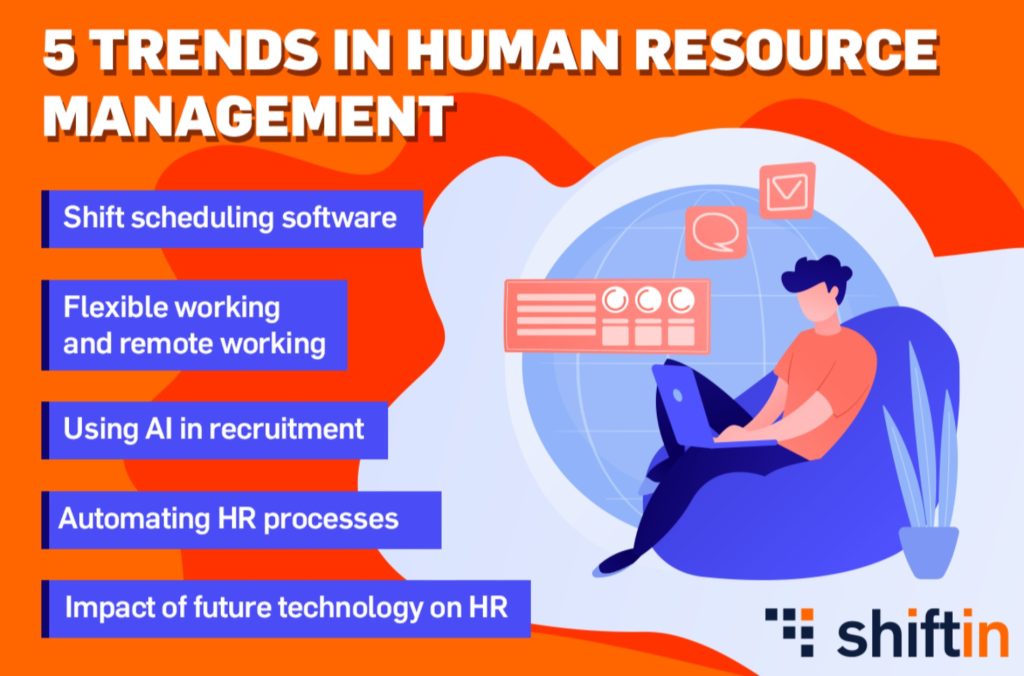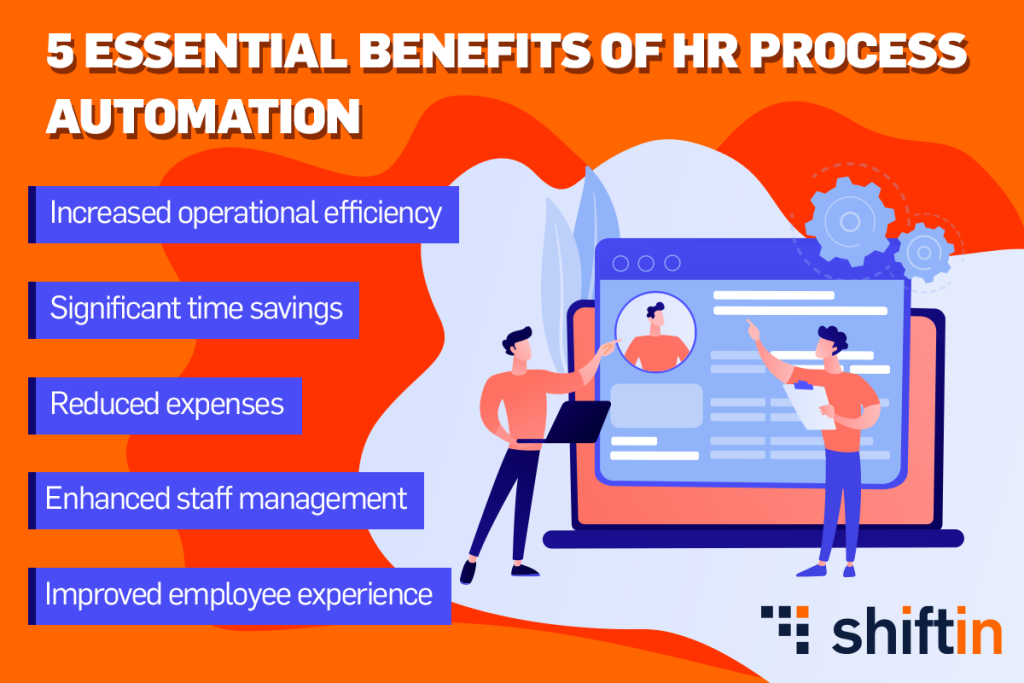- Trends in human resources management
- Impact of future technology on HR
- The impact of technology in workforce management
- Prepare for the future of HR
Human resource management plays a key role in helping organizations adapt to new challenges and opportunities. Emerging technologies and changing work dynamics require new approaches to managing teams and optimizing the workforce. This article presents five major trends that are transforming human resource management and will define the future of the field.
Trends in human resources management
From digitization of processes, to work flexibility and the integration of artificial intelligence, there are multiple trends transforming HR departments and influencing organizational performance. In the following, we explore five of these trends that are shaping the future of HR management.
Shift scheduling software
The first step towards modernized HR management is the implementation of shift planning software. These solutions help organizations to optimize available resources by providing flexibility and efficiency in task allocation. Automating the scheduling process reduces human errors and saves valuable time. It also gives employees greater transparency into their work schedule, contributing to better team coordination.
Scheduling software plays an essential role in automating routine processes, improving team management and supporting better work organization. In addition, this type of HR software helps companies adapt to rapid changes in the environment and improve employee productivity.
Flexible working and remote working
Another dominant trend in human resources management is increasing work flexibility. More and more companies are implementing policies that allow employees to work remotely or to adopt a flexible work schedule. This trend has been accelerated by the pandemic and remains a key aspect of team management. Flexible working not only increases employee satisfaction but also has a significant impact on employee retention. It also improves work-life balance, which contributes to overall efficiency.
Using artificial intelligence in recruitment and talent management
Artificial Intelligence (AI) is playing an increasingly important role in human resources management, especially in recruitment and talent management processes. Using AI, companies can analyze large volumes of data to select the most suitable candidates and improve the onboarding process.
This trend is part of the digital transformation of HR departments, as AI can assess a candidate’s skills and competencies faster and more efficiently than traditional methods. In addition, AI helps to monitor employee performance and identify training needs, thus contributing to better workforce optimization.
Automating HR processes
Another key issue in HRM is the automation of repetitive processes. From onboarding to benefits management, many routine tasks can be automated with the help of technology. Automating processes not only saves time, but also reduces errors and improves data accuracy. This automation allows HR teams to focus on more strategic tasks and support digital transformation initiatives within the organization. Additionally, it helps ensure compliance with labor regulations and standards, providing better control over all HR-related processes.

Impact of future technology on HR
Emerging technologies such as artificial intelligence, predictive analytics and next-generation HR software are radically transforming the way HR teams operate. These technologies not only streamline processes, but also help create more agile teams that are ready to respond quickly to market changes.
The technology of the future brings added value to team management by offering integrated digital solutions that monitor performance, manage tasks and optimize efficiency. This trend is closely linked to digital transformation and is a central pillar in the HR strategy of the future.
The impact of technology in workforce management
Technology plays a critical role in modern HR management, transforming the way companies manage their teams and optimize their workforce. From automating processes to implementing HR software solutions, technology facilitates better work organization and reduces administrative burdens.
Implementing emerging HR technologies not only improves operational efficiency, but also supports organizations’ long-term goals. Companies that invest in these solutions become more agile, competitive and prepared to meet future challenges.
Prepare for the future of HR
As technology continues to evolve, companies that embrace these trends will have a competitive advantage. Human resources management is moving towards a digital future where process automation, artificial intelligence and flexible working will be critical to organizations’ success.
If you are ready to transform your workforce management and implement innovative solutions, our team is here to help you prepare for the digital future.




